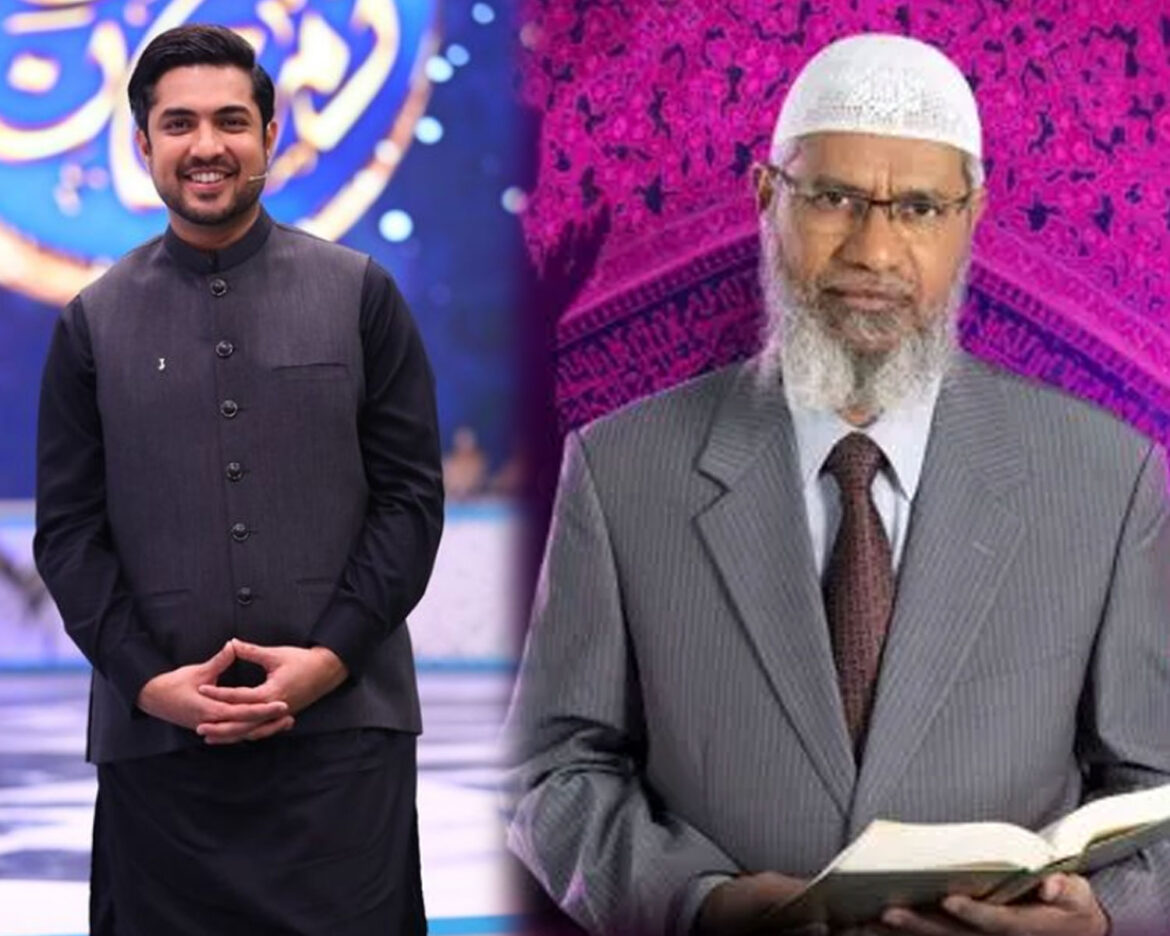In a recent television appearance, popular Pakistani anchor and journalist Iqrar-ul-Hassan addressed the controversial remarks made by renowned Islamic scholar Dr. Zakir Naik, asserting that the comments made by Naik might have been a reflection of his own personal views rather than a universal truth.
Iqrar, known for his candid approach to social and religious issues, commented on a statement Dr. Naik had made in a past lecture, where he appeared to generalize certain negative traits about men. “Dr. Zakir Naik might have been talking about himself when making those remarks,” Iqrar said. “But the reality is that not all men are like that. People cannot be pigeonholed into such stereotypes.”
While Dr. Naik’s lectures often touch on various aspects of Islamic teachings, his statements have sparked debate, particularly around the roles and behavior of men and women in society. Iqrar, who is widely respected for his investigative journalism, pointed out that such sweeping generalizations can be misleading and do not reflect the diversity of individual experiences.
“I’ve interacted with countless men from all walks of life, and many of them are respectful, compassionate, and responsible. To say that all men exhibit the same negative traits is an oversimplification,” Iqrar added, urging the public to critically assess such statements and avoid falling into the trap of stereotypes.
The comments have sparked widespread discussion, with some agreeing with Iqrar’s point of view, while others defend Dr. Naik’s teachings as a reflection of his understanding of societal issues. As the debate continues, the importance of nuanced dialogue and understanding remains a key theme in discussions surrounding gender roles and societal expectations.



